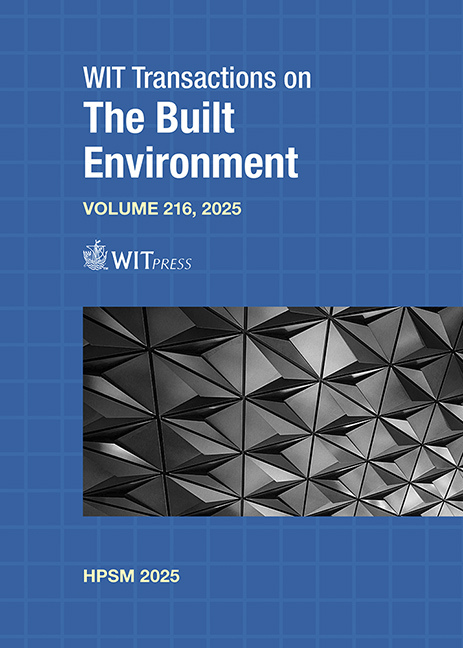TOPOLOGY OPTIMIZATION OF STRUCTURES WITH STRESS, BUCKLING AND DYNAMIC BEHAVIOUR CONSTRAINTS
Price
Free (open access)
Transaction
Volume
216
Pages
11
Page Range
137 - 147
Published
2025
Paper DOI
10.2495/HPSM250121
Copyright
Author(s)
MARTÍN REY, IVAN COUCEIRO, JOSÉ PARÍS, LUIS RAMÍREZ, FERMÍN NAVARRINA
Abstract
We can define topological optimization of structures as the branch of computational mechanics that seeks to obtain optimal material layouts in a given domain under specific boundary conditions. This discipline, pioneered by Bendsøe and Kikuchi in the late 1980s, is becoming increasingly relevant due to its direct application in various sections of applied physics such as civil, mechanical and aeronautical engineering. In recent years, the advancements in computational capacity have enabled a significant leap in the topological optimization of structures. This work aims, first, to systematize and compile the current knowledge surrounding the behaviour of structural models with intrinsic relative densities used in the SIMP method, in order to design solutions to the various physical and numerical challenges arising from the use of Galerkin interpolation methods (FEM, IGA, etc.) for solving elasticity equations with relative density. Specifically, we will attempt to address the problems arising from topological optimization processes in which dynamic structural analysis or second-order theory plays a fundamental role. Ultimately, the main objective of this work is to design topological optimization formulations for structures of isotropic materials using the SIMP method integrating advanced constraints and combining them in a way that accounts for an increasing number of physical phenomena, thereby reducing the structure’s weight to optimal level. The reduction in structural weight introduces the potential for instabilities, dynamic effects and nonlinearities, which will be addressed throughout the optimization process using well-known structural analysis techniques such as the calculation of natural vibration frequencies, linear buckling or full geometric nonlinearity.
Keywords
structures, optimization, buckling, frequencies, stress





